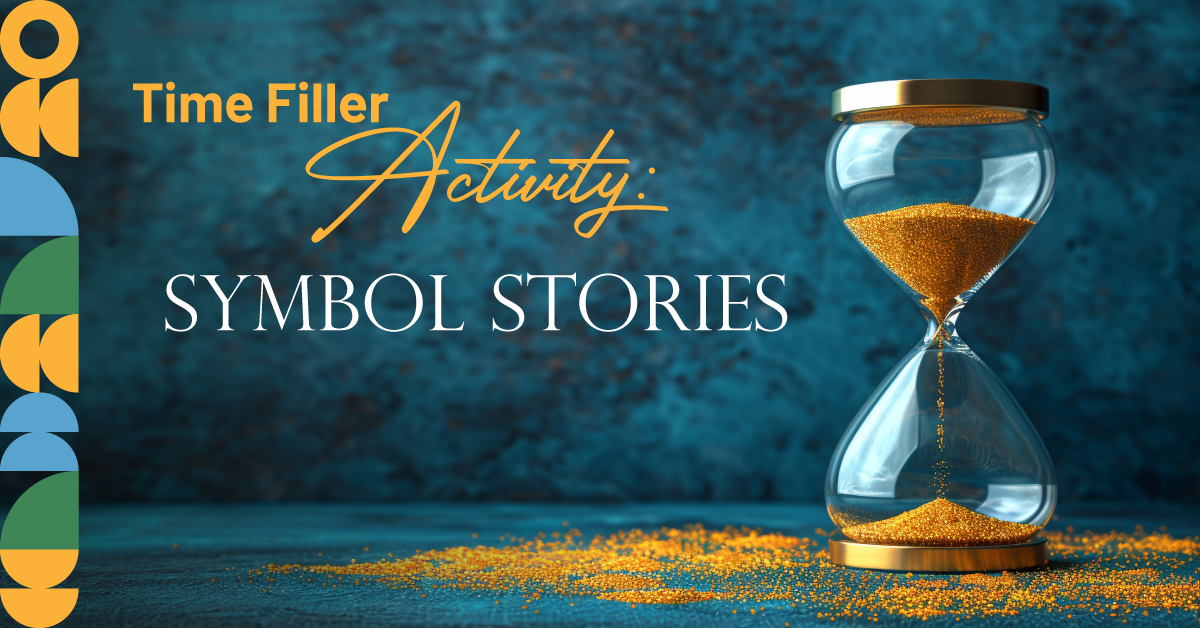Horror Movie 101: Failing Can Be Deadly by Steven Stack is a chilling mix of horror and humor - perfect for student performers and the spooky season! 👻
Time Filler Activity: Everything You Know
Are you curious to know what your students know about a particular topic? Or do you wonder about what they actually retained from your last lesson? The following activity is a good way to find out quickly. The goal is simple: find out everything your students know about a particular topic in five minutes or less. It’s a great time-filler activity, or it can be used as an opening bellwork activity. You can do it as a full class activity, in small groups, or as an individual activity, and only a couple of supplies are required.
Materials Needed
- Stopwatch
- Writing implements — pencil and paper or cell phones/tablets/Chromebooks (if you’re doing this individually or in small groups), or a blackboard/smart board (if you’re working with a full class)
Instructions
1. Choose a time frame to work in. Use smaller increments for smaller groups — for example, 1–2 minutes for individuals, 3–4 minutes for small groups, and 5 minutes for a full class. Adjust as necessary, depending on how much time you have to fill.
2. If you are working in small groups or as a full class, select one person to be the note-taker (one per group). Choose the student who is the fastest writer/typist.
3. When the teacher says “GO,” students will write down everything they know about a particular theatrical topic. If they’re working individually, they’ll write out everything they know about the topic by hand or digitally. For some students, it might be faster to use talk-to-text technology or do a voice recording, and that’s ok too. If they’re working as a full group, you can have students shout out their answers, rapid-fire style, or have them raise their hands. Just be quick!
Point form notes are fine, but each point needs to be a complete thought and make sense. Students can always add extra notes or develop points further as necessary.
Some topics might include “Everything you know about…”
- Theatre etiquette
- Stage makeup
- The play the class is currently studying
- Stage combat
- Commedia dell’arte
- The lesson that we just finished today/yesterday
- A particular actor/playwright/theatrical historical figure
- Warm-ups
- What should be included in a show programme
- Improvisation
4. When writing “everything you know about…” students can write literally anything they can think of relating to the show. For example, if the topic is the play the class is currently studying, students could start with things like:
- Play title: The House
- Playwright: Lindsay Price
- There are 28 characters.
- It’s set in the present day, in October.
- There are four separate stories within the show.
- Liath appears in all four stories.
- Liath is pronounced “LEE-EH” (not “lee-ath”).
For “Everything you know about stage combat,” lists might include:
- If it isn’t safe, don’t do it.
- Stage combat = the illusion of violence.
- Stage combat must always be done under the supervision of a fight director.
- Never do a real slap.
- Always do a warm-up and fight call during pre-show.
- Run each fight twice during fight call: once at half speed and once at performance speed.
- The sound that a slap/punch/blow makes is called a “knap.”
And so on. They can talk about content, themes, characters, rules, definitions, memorable quotes, whatever they know about it. Once they’ve got the basics out of their brains, they can go deeper (within the time limit). The goal is to run out of time before they run out of ideas!
5. Students will write as quickly as possible for the full amount of time you’ve selected. When the timer goes off, students must stop writing immediately. If you’re working as a full class or small group, have students include their initials next to their answers, so you know who contributed what.
6. If time permits, you can have your students share their answers verbally, or have them submit the answers to you.
When you’re selecting a topic, you might choose one that you’ve recently studied in class to see what information your students have retained and can quickly recall. It’s an immediate assessment of what your students took away from the lesson. If there are noticeable sections missing in students’ notes, that gives you an idea of what needs to be reviewed. Remember that some students may not work well under pressure, and might be able to recall more information in a different setting. In that case, if time permits, follow up the activity with a class discussion.
Conversely, you might choose a topic that you haven’t yet focused on to gauge what knowledge your students currently possess. This way you can see what you could focus your lessons on, where your students’ interests lie, and where their knowledge gaps are.
Let us know how your students respond to this activity!



